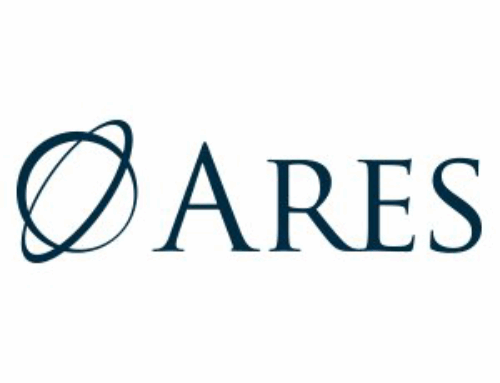Kenanga Investment Bank Berhad (KLSE:KENANGA) most popular amongst individual investors wh
October 5, 2025
-
Kenanga Investment Bank Berhad’s significant individual investors ownership suggests that the key decisions are influenced by shareholders from the larger public
-
A total of 8 investors have a majority stake in the company with 53% ownership
Every investor in Kenanga Investment Bank Berhad (KLSE:KENANGA) should be aware of the most powerful shareholder groups. And the group that holds the biggest piece of the pie are individual investors with 29% ownership. Put another way, the group faces the maximum upside potential (or downside risk).
Meanwhile, individual insiders make up 25% of the company’s shareholders. Large companies usually have institutions as shareholders, and we usually see insiders owning shares in smaller companies.
Let’s delve deeper into each type of owner of Kenanga Investment Bank Berhad, beginning with the chart below.
See our latest analysis for Kenanga Investment Bank Berhad
Institutions typically measure themselves against a benchmark when reporting to their own investors, so they often become more enthusiastic about a stock once it’s included in a major index. We would expect most companies to have some institutions on the register, especially if they are growing.
Kenanga Investment Bank Berhad already has institutions on the share registry. Indeed, they own a respectable stake in the company. This suggests some credibility amongst professional investors. But we can’t rely on that fact alone since institutions make bad investments sometimes, just like everyone does. When multiple institutions own a stock, there’s always a risk that they are in a ‘crowded trade’. When such a trade goes wrong, multiple parties may compete to sell stock fast. This risk is higher in a company without a history of growth. You can see Kenanga Investment Bank Berhad’s historic earnings and revenue below, but keep in mind there’s always more to the story.
We note that hedge funds don’t have a meaningful investment in Kenanga Investment Bank Berhad. Our data shows that Cahya Mata Sarawak Berhad is the largest shareholder with 19% of shares outstanding. With 9.5% and 4.9% of the shares outstanding respectively, Tengku Noor Zakiah Family Trust and Cheng Wui Pui are the second and third largest shareholders. Additionally, the company’s CEO Chay Leong directly holds 1.1% of the total shares outstanding.
We did some more digging and found that 8 of the top shareholders account for roughly 53% of the register, implying that along with larger shareholders, there are a few smaller shareholders, thereby balancing out each others interests somewhat.
While it makes sense to study institutional ownership data for a company, it also makes sense to study analyst sentiments to know which way the wind is blowing. We’re not picking up on any analyst coverage of the stock at the moment, so the company is unlikely to be widely held.
The definition of company insiders can be subjective and does vary between jurisdictions. Our data reflects individual insiders, capturing board members at the very least. Company management run the business, but the CEO will answer to the board, even if he or she is a member of it.
Most consider insider ownership a positive because it can indicate the board is well aligned with other shareholders. However, on some occasions too much power is concentrated within this group.
It seems insiders own a significant proportion of Kenanga Investment Bank Berhad. It has a market capitalization of just RM627m, and insiders have RM156m worth of shares in their own names. This may suggest that the founders still own a lot of shares. You can click here to see if they have been buying or selling.
The general public– including retail investors — own 29% stake in the company, and hence can’t easily be ignored. This size of ownership, while considerable, may not be enough to change company policy if the decision is not in sync with other large shareholders.
Our data indicates that Private Companies hold 16%, of the company’s shares. Private companies may be related parties. Sometimes insiders have an interest in a public company through a holding in a private company, rather than in their own capacity as an individual. While it’s hard to draw any broad stroke conclusions, it is worth noting as an area for further research.
Public companies currently own 20% of Kenanga Investment Bank Berhad stock. It’s hard to say for sure but this suggests they have entwined business interests. This might be a strategic stake, so it’s worth watching this space for changes in ownership.
While it is well worth considering the different groups that own a company, there are other factors that are even more important. Like risks, for instance. Every company has them, and we’ve spotted 2 warning signs for Kenanga Investment Bank Berhad (of which 1 can’t be ignored!) you should know about.
Of course this may not be the best stock to buy. So take a peek at this free free list of interesting companies.
NB: Figures in this article are calculated using data from the last twelve months, which refer to the 12-month period ending on the last date of the month the financial statement is dated. This may not be consistent with full year annual report figures.
Have feedback on this article? Concerned about the content? Get in touch with us directly. Alternatively, email editorial-team (at) simplywallst.com.
This article by Simply Wall St is general in nature. We provide commentary based on historical data and analyst forecasts only using an unbiased methodology and our articles are not intended to be financial advice. It does not constitute a recommendation to buy or sell any stock, and does not take account of your objectives, or your financial situation. We aim to bring you long-term focused analysis driven by fundamental data. Note that our analysis may not factor in the latest price-sensitive company announcements or qualitative material. Simply Wall St has no position in any stocks mentioned.
Search
RECENT PRESS RELEASES
Related Post




